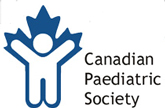![]()
Canada's largest newspaper
York teachers learn signs of child poverty
Program addresses growing income gap in affluent board
High school students without money face special challenges
Toronto Star, by TESS KALINOWSKI, EDUCATION REPORTER, page F5, January 16, 2004
When it's lunchtime, they pretend they're not hungry or they forgot their lunch.
When it's Take Your Child to Work Day, they've forgotten their permission slip.
On pizza and hot dog days, they claim they don't like every kid's favourite foods.
These are the signs of child poverty that teachers in York Region — with one of the province's most affluent and highest-achieving school boards — were being trained to recognize at a conference yesterday.
Many are becoming increasingly familiar with the tactics children employ to avoid the embarrassment of not having any money.
Among York's mushrooming dream homes, a growing number of kids are sleeping on the concrete floors of illegal basement apartments, said school board superintendent Vicki Bismilla, who helped organize the Richmond Hill meeting that drew about 400 teachers and administrators.
"It was gnawing away at me that we were not dealing with poverty. School is the place where the red flags come up," she told the conference.
Bismilla cited areas of south Markham, Keswick and Maple that are being settled by immigrants and lower-income residents from Toronto, bringing welcome diversity but also significant challenges to York classrooms.
Because of its affluence, many people don't recognize that there are pockets of dire need in York, said board chair Bill Crothers.
"Poverty indirectly impacts all our schools," he said. "If you don't address it, you're not doing anybody any service."
The board has already identified 19 "Performance Plus" schools, with about 10,000 children, which get extra teaching resources and social supports, said superintendent Neil Beatty. That's up from 12 five years ago. Next year, Beatty said, the number will increase to 25 as the board tries to respond to the region's galloping growth.
"When you're up against schools that are among the highest achieving in the province, schools at the bottom look really bad," he said.
While many at the conference talked about the effects of poverty on the cognitive development and health of young children, Maple High School principal Jim Orfanakos spoke about what being poor means to teens.
Typically, a high-school student is faced with the expense of proms and a graduation trip, which can cost hundreds of dollars, and even routine costs such as $25 to $40 for a team uniform, $25 for a yearbook or $20 to $50 for course materials.
"No kid is to be deprived or left out because they are suffering financial hardship," Orfanakos said. He lets staff know there are funds for students who can't afford uniforms, vouchers for those with nothing to eat and that field trips are planned only if they contribute to students' education.
Many teenagers living in poverty don't like to leave school at the end of the day, he said, because it's a warm place where they can meet their friends without embarrassment.




